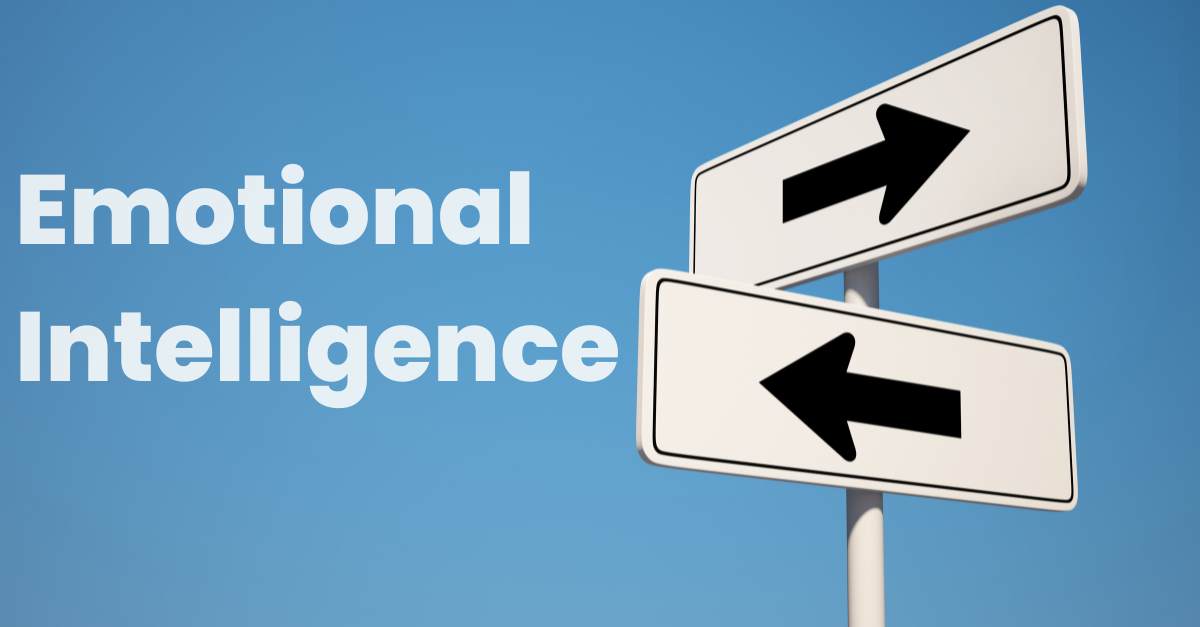
In today’s fast-paced, high-pressure world, emotional intelligence (EI) is a critical component of effective leadership. It’s not just about being aware of your own emotions; it’s about building meaningful connections with others. Emotional intelligence is a two-way street—a mutual exchange where understanding yourself helps you better understand and empathize with others.
The Importance of Emotional Intelligence
Emotional intelligence is more than just understanding emotions—it’s about the impact you leave on others. Maya Angelou once said, “I’ve learned that people will forget what you said, people will forget what you did, but people will never forget how you made them feel.”
In leadership, this sentiment is especially true. A leader’s words and actions may fade from memory, but the way they make their team feel—valued, understood, and supported—can leave a lasting impression. Emotional intelligence enables leaders to create an environment where people feel seen and heard, building trust and collaboration. It’s about prioritizing the shared success of the group over personal recognition.
Great leaders recognize that selflessness is the cornerstone of achieving a common goal. When you listen with empathy, regulate your emotions, and connect on a human level, you inspire those around you to rise to the occasion. Emotional intelligence isn’t just a skill—it’s a mindset that fuels progress and unity.
How Emotional Intelligence Works: A Relatable Scenario
Here’s a real scenario of emotional intelligence in action between a team member and a manager. To honor confidentiality, we’ll refer to them as Sarah and James. At work, Sarah has been unusually quiet during meetings. Deadlines are looming, and tensions are high. Instead of assuming disengagement, James decides to check in. During a one-on-one, he calmly asks if everything is okay. Sarah opens up about feeling overwhelmed by her workload and personal challenges at home.
Instead of reacting with frustration about her performance, James listens empathetically and offers support by adjusting her deadlines and temporarily redistributing tasks among the team. Sarah feels understood and valued, which motivates her to contribute even more effectively once her situation stabilizes.
Now consider a personal context: You and a close friend have a disagreement about plans for the weekend. Instead of escalating the argument, you take a step back to understand their perspective. You realize they’ve had a tough week and just need some time to recharge. By showing empathy, you strengthen your bond and avoid unnecessary conflict.
These situations highlight the power of emotional intelligence—understanding emotions, responding with empathy, and creating solutions that build trust and collaboration. Whether at work or in personal life, EI helps us navigate challenges with grace and strengthen relationships.
Three Steps to Build Emotional Intelligence
Building emotional intelligence doesn’t happen overnight, but with intention and practice, anyone can develop this invaluable leadership skill. Here are three actionable steps to get started:
- Practice Active Listening: Listening isn’t just about hearing words; it’s about understanding the feelings and intentions behind them. The next time you’re in a conversation, focus entirely on the other person. Avoid interrupting, and instead, reflect on what they’re saying before responding.
- Enhance Self-Awareness: Take a few moments each day to reflect on your emotional state. What triggers certain reactions? How do your emotions influence your decisions? Understanding your own emotional patterns helps you respond more effectively to others.
- Choose Empathy: Make an effort to put yourself in someone else’s shoes. Ask open-ended questions to understand their perspective, and validate their feelings even if you don’t fully agree. Empathy bridges gaps and strengthens relationships.
Reflection Exercise
Think back to a recent interaction where emotions ran high—either yours or someone else’s. How did you respond? What could you have done differently to better understand the other person’s perspective? Reflecting on past experiences can help you approach future situations with greater emotional intelligence.
Closing Thought
Emotional intelligence is a lifelong journey, but its rewards are immeasurable. When you lead with empathy and self-awareness, you create a ripple effect of trust, collaboration, and mutual respect. As Maya Angelou’s wisdom reminds us, the way we make others feel can shape their experiences and perceptions—and that’s the hallmark of a true leader. What steps will you take today to become more emotionally intelligent?
Thank you for taking the time to reflect and explore emotional intelligence with me. Your experiences and insights are invaluable, and I’d love to hear your story. How has emotional intelligence shaped your journey as a leader? Share your thoughts in the comments, send me a message, or pass this along to someone who exemplifies emotional intelligence. Together, let’s build a world where empathy and understanding lead the way.

About the Author
Jeremy Vaughn Clark is the founder of RISEpoint Leadership, a leadership development company empowering individuals through resilience, emotional intelligence, and strategic decision-making. A motivational speaker, coach, and author, Jeremy is passionate about helping people turn setbacks into opportunities for growth. Connect with him at risepointleadership.com or follow him on LinkedIn for more insights on thriving through challenges.